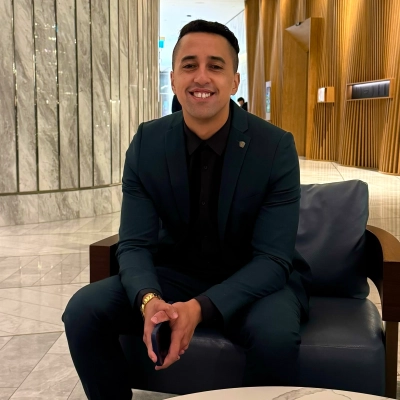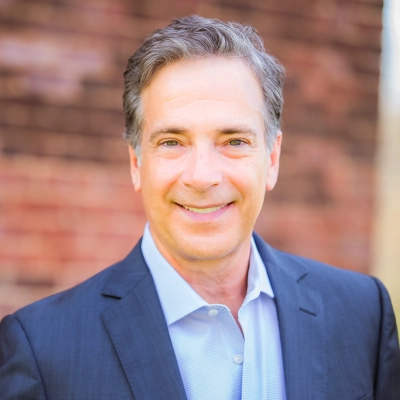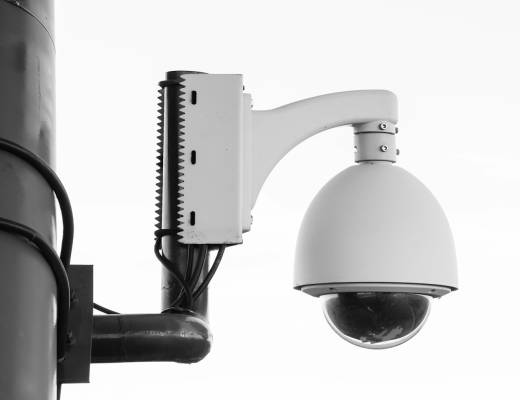Ethical dilemmas are a common challenge for entrepreneurs. We asked industry experts to share one ethical dilemma they’ve faced as an entrepreneur—and how they approached making a decision that aligned with their values. Learn strategies for maintaining integrity and making ethical decisions that can benefit both your business and society.
- Walk Away from Unethical Deals
- Stand Firm on Your Values
- Confront Racism and Resign if Necessary
- Live the Freedom You Preach
- Create Inclusive Legacy Books
- Step Aside for Company Growth
- Prioritize Trust Over Quick Profits
- Slow Down for Ethical AI Development
- Reform Suppliers or Remove Products
- Push Back Against Unethical Proposals
- Decline Misleading Marketing Campaigns
- Uphold Unbiased Hiring Practices
- Choose Transparency Over Short-Term Gains
- Build Credibility Through Ethical Choices
- Reject Fake Reviews for Long-Term Trust
- Put Clients’ Interests First
- Align Projects with Personal Values
- Speak Truth to Toxic Leadership
How to Navigate Ethical Dilemmas
Walk Away from Unethical Deals
Running a digital marketing agency for 8+ years, I’ve dealt with plenty of tough calls, but one still keeps me up at night. A potential client approached us seeking assistance with aggressive cold email campaigns that would clearly violate CAN-SPAM laws — they wanted to purchase massive email lists and blast promotional content without opt-ins.
The contract was worth $15K monthly, and we were a smaller agency that could really use the revenue. However, I knew this approach would harm innocent recipients and potentially damage our reputation if authorities became involved. I decided to walk away from the deal entirely.
Instead, I presented them with our LinkedIn outreach results — we regularly generate 400+ qualified emails per month and 40+ sales calls monthly for clients using compliant methods. The data speaks for itself: our ethical approach actually converts better than spam tactics.
That decision led to developing our proven outbound system that has now helped 90+ clients grow ethically. Sometimes the right choice costs money upfront but builds something much more valuable long-term.
 Magee Clegg
Magee Clegg
CEO, Cleartail Marketing
Stand Firm on Your Values
One of the hardest ethical decisions I faced was firing a client who was paying us five figures a month because they were treating their own customers like transactions.
They wanted marketing systems that would manipulate urgency, inflate value, and apply pressure tactics to close deals faster. Sure, it would’ve made us both a lot of money. But it didn’t sit right with me. I’ve built my reputation and my companies on helping clients grow with trust, clarity, and long-term impact… Not shortcuts or smoke and mirrors.
So I pulled the plug. I walked away from the retainer, refunded part of the last month, and explained exactly why. That decision cost us in the short term, but long-term, it did something much more valuable… it attracted brands who aligned with our values, and it galvanized my team around the kind of business we don’t want to be.
Sometimes doing the right thing means saying no to the easy thing.
 Michael Ripia
Michael Ripia
Founder & Director, Halo Marketing
Confront Racism and Resign if Necessary
I was on a site visit with a couple of my clients. They were both very unfiltered in how they spoke and were the epitome of the “good old boys’ club” in how they viewed the world. One of them used a serious racial slur when referring to President Obama. I literally couldn’t believe he thought that was acceptable. They were my biggest client.
After contemplating it for a couple of days and discussing the massive personal conflict it was causing me with my wife, I decided to act. I informed the client that I wouldn’t work in that environment, stating that his behavior was unacceptable (and simply not appropriate). I then tendered my resignation. I was prepared to walk away from the business, even though the financial impact would be significant.
To my surprise, the client apologized profusely. I accepted his apology, and I never experienced an issue anywhere close to that with the client again.
Moral: If you’re going to stand up for your values, be willing to walk away.
 Paul Jankowski
Paul Jankowski
Founder/CEO, New Heartland Group
Live the Freedom You Preach
One of the biggest ethical dilemmas I faced as an entrepreneur was realizing I was preaching freedom… but not fully living it.
We entrepreneurs often start our businesses because we crave freedom. However, somewhere along the way, many of us become trapped — by our own expectations, pressure, and emotional baggage. That was me. I talked about creating a life on your own terms, but I didn’t feel fully liberated. Not yet… Something was clearly missing.
It took real honesty to recognize the disconnect between what I said I stood for and what I was actually experiencing. I had to ask myself: How do I stay in integrity and actually live this freedom I talk about?
That’s when everything shifted. I focused intensely on doing the inner work, and, as it often happens when we make a decision, I stumbled across some powerful methods I’d never heard about before. I focused on transmuting stuck emotions that had been holding me back in ways I hadn’t even seen clearly before. I stopped bypassing the deeper layers and started meeting them head-on, rather than just focusing on releasing endless numbers of limiting beliefs (which I’d already been doing). Because what keeps most people stuck are undigested emotions, not just “mindset.” That’s what keeps your success smaller than it could be. That’s what quietly steals your sense of peace and power.
And I didn’t just do it for myself. I brought new methodologies into my work with clients too — because I saw that they were struggling with the same hidden constraints, and I knew what this work could do. How could I keep this away from my clients?
This process isn’t linear. It’s not a one-time fix. But I’m in the midst of it now, and it’s changing everything. I feel more joyful, more fulfilled, more true to who I really am — and yes, more free. This is not just transformation; it’s liberation.
Because freedom isn’t just a marketing message. It’s something you have to live. And that starts from within.
So, as an entrepreneur, are you feeling 100% free? Be honest with yourself. That’s the first step to shifting out of what you no longer want to experience — and toward what you do want, your true desires, your preferred reality as a business owner. And don’t just repeat surface-level tools. Use powerful methods that truly create change.
 Regina Huber
Regina Huber
Transformational Leadership Coach, Speaker, Author, CEO, Transform Your Performance
Create Inclusive Legacy Books
As an entrepreneur who works closely with families to preserve personal stories, I’ve encountered an unexpected ethical dilemma: what to do when a person I’m interviewing uses racist or homophobic language.
It’s incredibly uncomfortable in the moment, especially when I’m trying to create a warm, safe space for someone to share their memories. At first, I struggled with whether to confront it during the interview or quietly omit it from the final product. I didn’t want to shame or embarrass anyone, but I also knew I couldn’t ignore it.
Ultimately, I created a clear and public policy on my website: we do not include hate speech, slurs, or harmful language in the legacy books we produce. I explain that our goal is to honor each person’s story in a way that is inclusive and respectful for all readers. We don’t change the meaning of someone’s story, but we will edit out words or phrasing that are harmful or offensive. It’s not censorship — it’s care.
This policy has given me a values-aligned framework I can rely on when those moments arise. It also gives families clarity upfront so there’s no confusion or hard feelings later on. I’ve even had clients thank me for addressing it so openly, and some have used it as a way to start important conversations within their own families. After all, many of these stories come from times when social norms were very different, and legacy work can be a powerful way to discuss how things have changed.
For me, the decision was about creating a business where empathy leads and no one reading one of our books feels alienated, targeted, or hurt.
 Keesia Wirt
Keesia Wirt
Founder, Circa Legacy
Step Aside for Company Growth
One ethical dilemma I’ve faced as a founder is knowing when to step aside for the good of the business. At my previous company, we hit a point where scaling meant bringing in a CEO who could take the day-to-day operations further than I could alone. That wasn’t an easy decision; it meant letting go of control, ego, and identity tied to being “the guy in charge.” But the mission mattered more than the title.
What led me to make the decision was a strong commitment to my values. I believe in building enduring systems that aren’t dependent on the founder. Stepping back was both a strategic and values-based choice.
In hindsight, that decision set the tone for everything we’re doing now at my current company; building with people who are aligned, who believe in the mission, and who want to create something bigger than any one individual.
 Alex Smereczniak
Alex Smereczniak
Co-Founder & CEO, Franzy
Prioritize Trust Over Quick Profits
An ethical dilemma I faced early on was being offered a large contract from a potential client whose public image was strong — but behind the scenes, their behavior toward artists and collaborators was really questionable. It would have been easy to take the check and look the other way, but that’s never been how we operate. My company was built on trust, transparency, and putting people first. I turned it down, and it was a reminder that success isn’t just about who you work with — it’s about what you’re willing to stand for.
 Trevor Perkins
Trevor Perkins
Founder, PERK PR & Creative Agency
Slow Down for Ethical AI Development
One experience that really stands out happened in the early days of my company. We were developing features to streamline documentation for clinicians, such as automating notes, summaries, and even certain diagnostic flows. The technology was exciting, and honestly, we were pushing hard to be first to market. However, we hit a roadblock when we realized that increasing speed could come at the cost of accuracy and transparency. In healthcare, that’s not just an engineering issue; it’s an ethical one.
The dilemma was quite clear: Do we ship quickly and risk clinicians relying on something they can’t fully verify, or do we slow down and build in explainability and safeguards, knowing it might cost us time and market traction?
It wasn’t an easy decision, but we chose to slow down.
I kept returning to this core value: we’re here to support clinicians, not replace or outsmart them. If they don’t trust what we build or if it compromises their professional judgment, it fails, no matter how intelligent the AI is. So we brought in clinical advisors, built in transparency at every step, and gave users full control over what gets used and when.
That decision probably cost us a few early growth spikes, but it gave us long-term trust. And in healthcare, trust is everything. I would make the same call again without hesitation.
 Jamie Frew
Jamie Frew
CEO, Carepatron
Reform Suppliers or Remove Products
One ethical dilemma I faced was whether to include a high-margin snack product in our hampers after learning that it was flagged due to exploitative labor practices abroad. It was a good financial decision — a high-margin customer favorite, shelf-stable, which increased our profit per unit. However, it was in direct conflict ethically with everything we value: mindful feel-good giving that uplifts everybody in the chain.
Rather than quietly alleviate our ethical concerns by removing the product from our planned hampers, I sought to reform the supplier directly, asking them to be clear about their actions and set a turnaround timeframe. They were vague, and with that, we withdrew the product from any and all current and planned hampers and issued a small notice to our customers indicating we were revising our hamper program toward verified ethical sourcing.
The short-term pain was real, but it opened doors for better partnerships with B Corp and Fairtrade suppliers, who have become a unique strategic advantage for us.
I often consider: “Would I be proud to explain my decision to my customer — or child, for that matter — in five years?” If not, then the profit is not worth it. Ethics are not just guardrails; they are moments of brand definition.
 Mary Case
Mary Case
Founder, The Happy Food Company
Push Back Against Unethical Proposals
An ethical dilemma surfaced during negotiations with a global client who proposed shifting certain compliance responsibilities onto vendors — essentially sidestepping internal oversight. On paper, the arrangement was permissible, but it raised red flags around transparency and accountability. Agreeing would have opened doors to a long-term partnership and substantial revenue. However, it also risked eroding trust across stakeholders and setting a precedent that could quietly normalize ethical shortcuts.
The decision was to respectfully push back and suggest a more transparent model, even if it meant delaying or losing the deal. That approach ultimately led to a restructured agreement that honored both integrity and business goals. Moments like this serve as reminders: when values are clear, decisions aren’t hard — they’re just bold.
 Anupa Rongala
Anupa Rongala
CEO, Invensis Technologies
Decline Misleading Marketing Campaigns
I faced a tough ethical choice early on when a potential client wanted us to run campaigns that felt misleading about their product’s capabilities. The money would have been substantial for us at the time, but I knew it went against everything I believed in. I took a step back and asked myself, “Is this the kind of business I want to build?” The answer was clear. I turned down the deal and explained to my team that our reputation and values were worth more than any single contract. It stung financially in the short term, but that decision set the tone for how we operate. Now, we only work with companies whose missions we genuinely support, and it’s made all the difference in building trust with our team and clients.
 Aju Nair
Aju Nair
CEO & Co-Founder, EightBurst Marketing
Uphold Unbiased Hiring Practices
One ethical dilemma I faced early on was whether to aggressively pursue a large client who wanted us to tweak our assessment results to favor internal referrals. It was tempting, as we were just starting out, and the revenue would have made a huge difference. However, compromising on fairness and transparency, especially in hiring, went against everything we built our company for. So, we walked away. It wasn’t easy, but that decision reinforced our values: unbiased hiring, data integrity, and trust. Today, that same commitment is why companies trust our platform to make fair, skills-based decisions, and it’s a reminder that short-term gains should never outweigh long-term principles.
 Abhishek Shah
Abhishek Shah
Founder, Testlify
Choose Transparency Over Short-Term Gains
Two years into running my consultancy, I landed a lucrative contract with a fast-growing furniture maker. Mid-project, their finance chief pulled me aside: the bank was about to renew a credit line, and he wanted our new ERP dashboards to hide ninety days’ worth of overdue supplier invoices. “We’ll reconcile later,” he said, “we just need a cleaner snapshot this quarter.”
On paper, it was a small tweak — one filter on an aging-receivables report. But the request set off every alarm I had. My firm sells itself on “radical clarity” and the idea that good data drives good decisions. If I shipped a system designed to mislead, I’d be trading that ethos for a single invoice.
I asked for twenty-four hours to think. That night I wrote out two columns: short-term upside (keep the contract, book a healthy margin, maybe win referrals) versus long-term cost (staff morale, reputation, legal exposure). The downside column dwarfed the upside, but walking away felt reckless; we were a young outfit with payroll to meet. I called a mentor who reminded me that culture calcifies early — integrity is easiest to defend before you compromise it once.
The next morning I met the CFO and CEO together. I explained that filtering data to secure financing crossed a line and that my team wouldn’t build it. I offered an alternative: flagging the overdue invoices and attaching a remediation plan the bank could see — proof the company was serious about paying suppliers down. It was an uncomfortable conversation; the CFO argued I was overreacting, the CEO mostly listened. I left convinced we’d lose the deal.
Forty-eight hours later the CEO called back. They agreed to the transparent approach, partly, he admitted, because my refusal made him wonder what else might surface later. We finished the rollout, the bank renewed the credit line after reviewing the remediation notes, and the company has since become one of our best case studies. Internally, the episode became a touchstone story; new hires hear it during onboarding as a live example of “radical clarity.”
The lesson: an entrepreneur’s greatest asset is the trust people place in your word. When an ethical fork appears, pause, quantify the risks, seek outside wisdom, and — most importantly — offer a principled alternative instead of just saying no. You may still lose the deal, but if you keep your values intact, you’ll never lose the company you’re trying to build.
 André Ahlert
André Ahlert
CEO and Managing Partner, AEX
Build Credibility Through Ethical Choices
A few years ago, I had the opportunity to collaborate with a well-known company, which would have given me immediate exposure. However, behind the scenes, their team took shortcuts and treated merchants like second-class citizens. I knew that signing with them would compromise how we present ourselves, not just externally, but internally as well. So, I walked away.
The short-term gain wasn’t worth the long-term erosion of trust. Values aren’t what you write on a wall; they’re what you choose when no one’s watching. That decision didn’t boost revenue overnight, but it built something better: credibility I could stand on.
 Sahil Gandhi
Sahil Gandhi
CEO & Co-Founder, Blushush Agency
Reject Fake Reviews for Long-Term Trust
One ethical dilemma that came up was whether to take on a client who asked for fake reviews to boost their Google Business Profile. The client offered a large budget and promised long-term work, which sounded tempting at first.
It did not take long to see that saying yes would damage trust with other clients and risk penalties from Google. Beyond the technical side, it would have gone against the idea of helping real businesses show their true strengths.
I decided to turn down the project and focus on helping businesses earn real reviews through good service and smart follow-ups. This choice kept my agency’s reputation strong and built deeper trust with clients who want honest growth. This move has led to more referrals and stronger long-term partnerships.
 Ramzy Humsi
Ramzy Humsi
Founder & CEO, Vortex Ranker
Put Clients’ Interests First
One ethical dilemma I faced early in my career was the pressure to make a living and how that affected my relationships with my clients. I was juggling student loans, rent, and the costs of building a business from scratch. This pressure I felt was sometimes passed on to my clients, who unfortunately may have felt pressured to make big decisions quickly.
Despite this, I knew that if I wanted to build a business that lasted — and more importantly, one I could be proud of — I had to play the long game. I reminded myself why I got into this profession: to help people make smart, values-aligned financial decisions. So I made a commitment to always put my clients’ interests first, even if it meant slower growth or tighter months financially. This became a permanent philosophy for me and my business partners once I studied for and received the Certified Financial Planner™ designation.
That decision wasn’t easy, but it shaped the foundation of my practice. Over time, that integrity built trust. Clients referred friends and family, and my business grew organically. Looking back, I’m grateful I chose the harder path — because it’s the one that aligned with my values and ultimately led to sustainable success.
 Alex Sierra
Alex Sierra
Certified Financial Planner™, Cetera Investors
Align Projects with Personal Values
As an entrepreneur, I faced an ethical dilemma where I questioned the profitability of a project versus its dissonance with my own values. The project paid extremely well, but it meant I would be promoting an item I didn’t personally believe in, and it didn’t align with the moral compass that I uphold dearly.
I stepped back and reflected on what my values are and what I want for the future of my business. I thought about how backing the project could affect my brand integrity and the trust I have built with my clients. I also considered the potential effect it would have on my personal fulfillment and being truthful to my work.
In the end, I kept my content aligned with my values and brand. Was it a hard decision? Yes, it was, but it renewed my drive to do honest business. It taught me that honoring what I believe in (no matter how tough the call) will one day generate trust and respect from clients as well as peers.
 Dave Charnley
Dave Charnley
Photographer, Dave Charnley Photography
Speak Truth to Toxic Leadership
One of the most challenging ethical dilemmas I faced was deciding whether to stay silent about a toxic leadership system I had been part of, one that caused harm not just to me but to dozens of others, or risk my reputation by telling the truth publicly.
As someone who now writes and speaks about leadership, alignment, and emotional integrity, I knew that silence would be safer. But it would also be complicity.
I had to ask myself: Am I building a brand or a body of work? Am I protecting access or modeling accountability?
Ultimately, I chose to speak out in my writing, through my book, “Navigating Leadership,” and in the trainings I now provide. I didn’t name names or point fingers. I told the truth about what systems like that do to people’s health, confidence, and sense of identity. I ensured that the focus was on healing and clarity, rather than revenge.
It cost me in some spaces, but it earned me trust in the ones that matter.
The lesson: Your values will always cost you something. But abandoning them will cost you more.
 Marchem Pfeiffer
Marchem Pfeiffer
Author/Culture Strategist
 Magee Clegg
CEO, Cleartail Marketing
Magee Clegg
CEO, Cleartail Marketing
 Michael Ripia
Founder & Director, Halo Marketing
Michael Ripia
Founder & Director, Halo Marketing
 Paul Jankowski
Founder/CEO, New Heartland Group
Paul Jankowski
Founder/CEO, New Heartland Group
 Regina Huber
Transformational Leadership Coach, Speaker, Author, CEO, Transform Your Performance
Regina Huber
Transformational Leadership Coach, Speaker, Author, CEO, Transform Your Performance
 Keesia Wirt
Founder, Circa Legacy
Keesia Wirt
Founder, Circa Legacy
 Alex Smereczniak
Co-Founder & CEO, Franzy
Alex Smereczniak
Co-Founder & CEO, Franzy
 Trevor Perkins
Founder, PERK PR & Creative Agency
Trevor Perkins
Founder, PERK PR & Creative Agency
 Jamie Frew
CEO, Carepatron
Jamie Frew
CEO, Carepatron
 Mary Case
Founder, The Happy Food Company
Mary Case
Founder, The Happy Food Company
 Anupa Rongala
CEO, Invensis Technologies
Anupa Rongala
CEO, Invensis Technologies
 Aju Nair
CEO & Co-Founder, EightBurst Marketing
Aju Nair
CEO & Co-Founder, EightBurst Marketing
 Abhishek Shah
Founder, Testlify
Abhishek Shah
Founder, Testlify
 André Ahlert
CEO and Managing Partner, AEX
André Ahlert
CEO and Managing Partner, AEX
 Sahil Gandhi
CEO & Co-Founder, Blushush Agency
Sahil Gandhi
CEO & Co-Founder, Blushush Agency
 Ramzy Humsi
Founder & CEO, Vortex Ranker
Ramzy Humsi
Founder & CEO, Vortex Ranker
 Alex Sierra
Certified Financial Planner™, Cetera Investors
Alex Sierra
Certified Financial Planner™, Cetera Investors
 Dave Charnley
Photographer, Dave Charnley Photography
Dave Charnley
Photographer, Dave Charnley Photography
 Marchem Pfeiffer
Author/Culture Strategist
Marchem Pfeiffer
Author/Culture Strategist







